Restoring hope with ‘last resort’ grants

Overview
Financial aid, delivered fast
After receiving mental health treatment for nearly 10 years, Carrie finally had her symptoms under control and was able to put her experience to work as a part-time peer-support specialist for others in crisis.
But in 2023, Carrie encountered financial struggles and faced a dilemma: pay her rent or her overdue car insurance. The consequences were dire; either she’d lose her apartment, or she’d lose the ability to drive — and her job as a result. The stress was overwhelming and aggravated her mental health symptoms.
That’s when her treatment case manager submitted a request to the Northern Virginia Mental Health Foundation (NVMHF), which granted her $500 to cover her expenses. “Honestly, that was a life-changing level of support,” says Carrie.
For over 30 years, NVMHF helped over 6,000 individuals like Carrie in Fairfax County and Falls Church, Virginia. The organization is a “funder of last resort,” delivering financial aid within 7-10 days to help recipients avoid pitfalls that could turn into major disruptive life events.

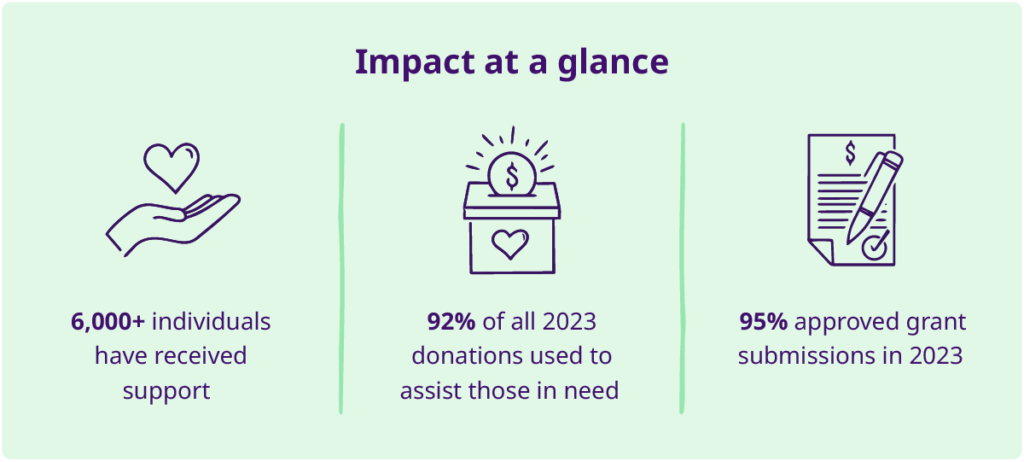
Challenges
Hands-on team, limited resources
When a client in treatment for a severe mental illness faces a challenge that can be helped with a monetary infusion, their case manager can submit a grant request to NVMHF’s all-volunteer organization for consideration. Most grants are under $1,000 and apply to a one-time financial need.
Grants commonly cover needs related to:
- Housing
- Transportation
- Dental care
- Medical care
- General wellness

Board member Mary Kahn reflects on the many grants that prevented people from experiencing homelessness. “It’s one of the most meaningful grants that we give,” she says.
Not all grants have the same urgency as a housing request, though they still provide financial support at a critical moment. “We are so thrilled to meet that gap,” says Lyn Tomlinson, an NVMHF board member who recently approved aid to a client completing a certification that could help them get a better job. “What a great investment.”
In addition to running the organization and considering each grant, NVMHF board members fundraise and track donations. Funders include individuals within the community, as well as local restaurants and stores that dedicate a portion of their proceeds toward grants.
It’s a lot to manage, and up until 2019, it was wholly based on spreadsheets and emails.
“It was very labor intensive, and, with an all-volunteer organization, we were not able to keep up with recognition for our generous donors as well as we wanted to,” says Cynthia Koshatka, president of NVMHF. The situation put stress on their mission and ability to serve the community.
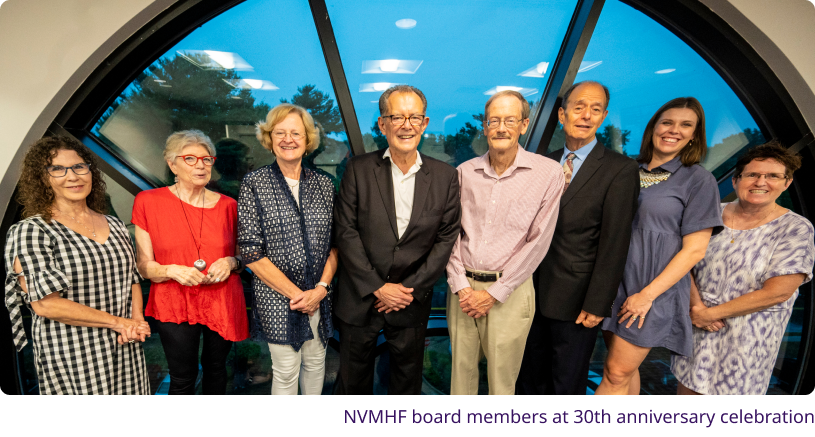
Solutions
Software eases pain points
NVMHF engaged Bonterra Network for Good in 2019 and quickly saw the platform’s impact. “It’s a systematic way to reach out to our donors,” says Cynthia. “It’s a game-changer.”
Though the COVID-19 pandemic disrupted NVMHF’s operations and grant approval process, the team continued to raise money more efficiently with the new technology. The ability to track donations provided insights into which fundraising efforts were most effective, and the communication tools saved precious time and effort.
“Bonterra has templates we’ve been able to use, and we can reach out and keep in contact with individual donors,” says Cynthia. “We’ve really been able to grow.”
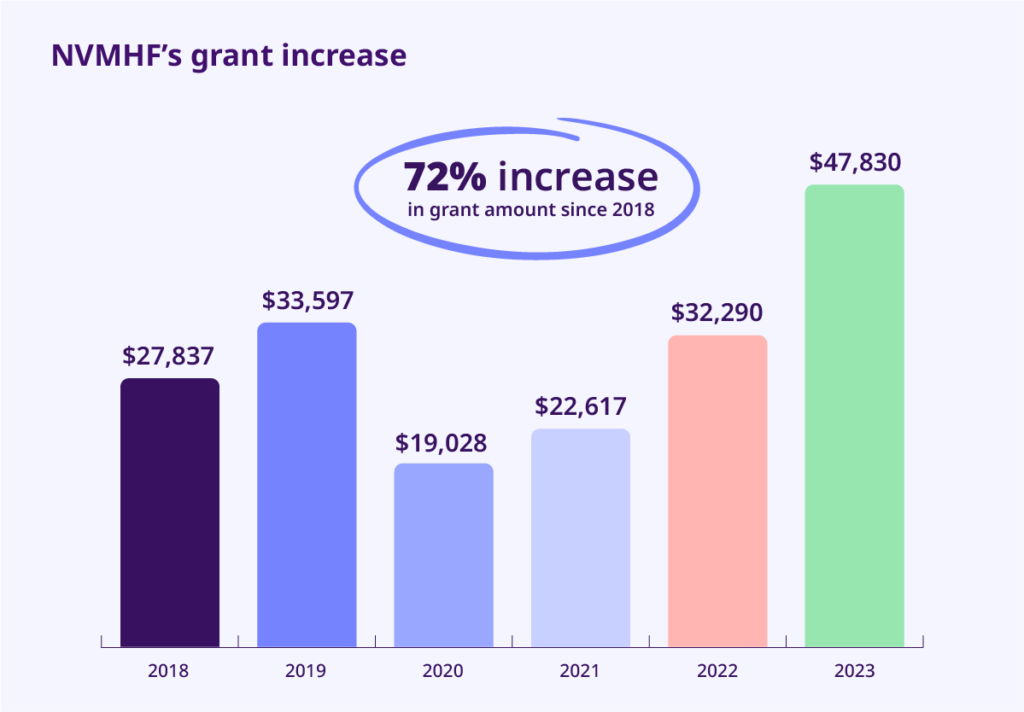
Impact
Funding with care
Since implementing Bonterra’s donor management system, NVMHF has increased funding by 72% since 2018. Now the team has big plans for the future: They want to cross the $100,000 threshold, which will not only allow them to expand their reach into surrounding communities, but it will also qualify the foundation for additional resources and grants.
“We’ve worked primarily with a behavioral health outpatient program, but there are other programs out there,” says Cynthia, citing various local youth programs and substance abuse initiatives. There’s no shortage of individuals who would benefit from restored hope.
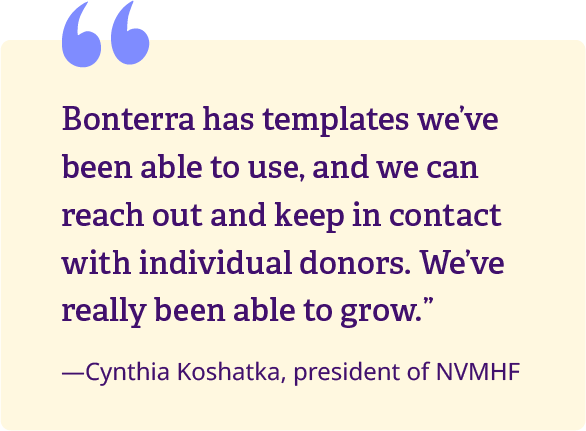
Cynthia recalls one NVMHF grant recipient — a recent refugee — who was given money for dental care. “He’s now feeling less depressed and more hopeful,” his case manager reported to the board, “not only because he’s experiencing less pain, but because he sees he’s not alone in this country. His hope is renewed because people care about him.”
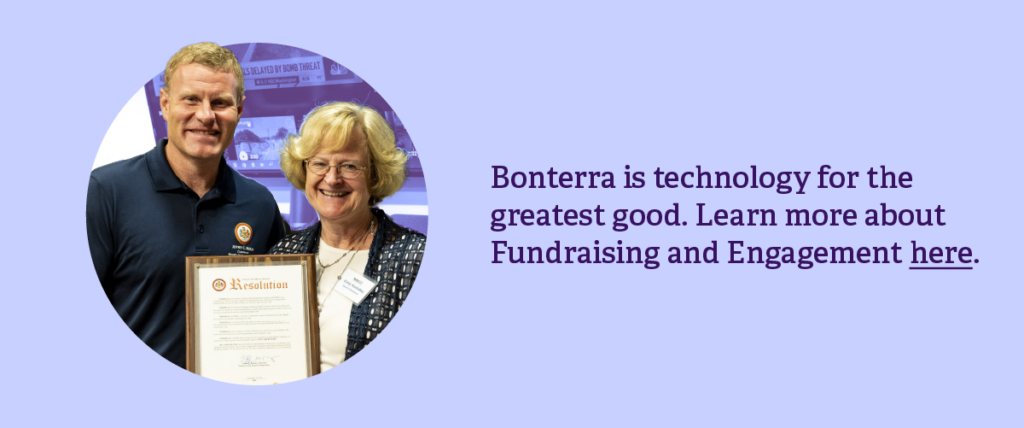
Work with Bonterra



